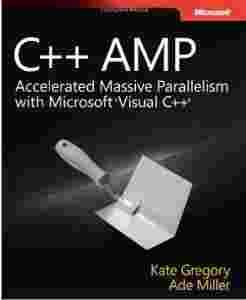C++ AMP - lepsze niż CUDA i OpenCL - programowanie

Aukcja w czasie sprawdzania była zakończona.
Cena kup teraz: 150 zł
Aktualna cena: 120 zł
Użytkownik tomasz_ziel
numer aukcji: 4479930513
Miejscowość Warszawa
Wyświetleń: 4
Koniec: 12-08-2014, 18:40
Dodatkowe informacje:
Stan: Nowy
Okładka: miękka
Rok wydania (xxxx): 2012
Kondycja: bez śladów używania
Tematyka: C++
